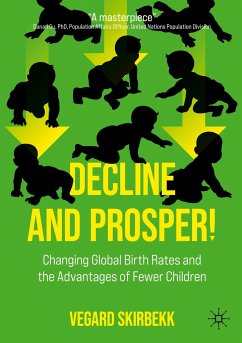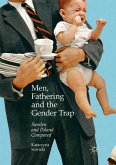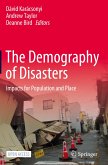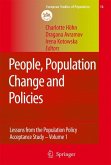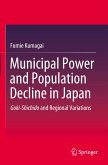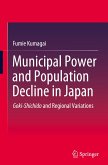Globally, women are having half as many children as they had just fifty years ago. Why have birth rates fallen, and how will low fertility affect our shared future?
In Decline and Prosper!, demographic expert Vegard Skirbekk offers readers an accessible, comprehensive and evidence-based overview of human reproduction. Readers learn about the evolution of childbearing across different populations and how fertility is related to (changes in) our reproductive capacity, contraception, education, religion, partnering, policies, economics, assisted reproduction, and catastrophes. Readers will explore the future of family size and its impact on human welfare, women's empowerment and the environment. Skirbekk argues that low fertility is on the whole a good thing, while recognizing the challenges of population aging and "coincidental" childlessness. A balanced, integrative examination of one of the most important issues of our time, Decline and Prosper! drives home the fact that we must ultimately adapt to a world with fewer children.
The book will be invaluable to anyone who is interested in the far-reaching effects of global fertility, including researchers and students of demography, social statistics, medical sociologists, family and childhood studies, human geographers, sociology of culture, social and public policy.
In Decline and Prosper!, demographic expert Vegard Skirbekk offers readers an accessible, comprehensive and evidence-based overview of human reproduction. Readers learn about the evolution of childbearing across different populations and how fertility is related to (changes in) our reproductive capacity, contraception, education, religion, partnering, policies, economics, assisted reproduction, and catastrophes. Readers will explore the future of family size and its impact on human welfare, women's empowerment and the environment. Skirbekk argues that low fertility is on the whole a good thing, while recognizing the challenges of population aging and "coincidental" childlessness. A balanced, integrative examination of one of the most important issues of our time, Decline and Prosper! drives home the fact that we must ultimately adapt to a world with fewer children.
The book will be invaluable to anyone who is interested in the far-reaching effects of global fertility, including researchers and students of demography, social statistics, medical sociologists, family and childhood studies, human geographers, sociology of culture, social and public policy.
"This book assembles many findings, facts, insights, and opinions related to fertility ... . The book is easy to read ... ." (Nico Keilman, Journal of Peace Research, March 1, 2023)
"Dr. Skirbekk's prescriptions could help ameliorate some problems young men are experiencing throughout the developed world." (Jessica Grose, The New York Times, nytimes.com, February 15, 2023)
"Vegard Skirbekk's Decline and Prosper! Changing Global Birth Rates and the Advantages of Fewer Children is a welcome reality check. ... '... the breadth of this book is, in fact, its great strength.' And with this, I wholeheartedly agree. Decline and Prosper! is a concise and engaging overview of what we know about low fertility, how we got there, and why it will almost surely persist. And, ultimately, that things will be fine." (Joshua Wilde, Population and Development Review, September 14, 2022)
"It is a valuable resource, presenting much research on fertility around the world. ... I recommend it to anyone interested in human fertility and demography." (Frank Götmark, overpopulation-project.com, September 6, 2022)
"Dr. Skirbekk's prescriptions could help ameliorate some problems young men are experiencing throughout the developed world." (Jessica Grose, The New York Times, nytimes.com, February 15, 2023)
"Vegard Skirbekk's Decline and Prosper! Changing Global Birth Rates and the Advantages of Fewer Children is a welcome reality check. ... '... the breadth of this book is, in fact, its great strength.' And with this, I wholeheartedly agree. Decline and Prosper! is a concise and engaging overview of what we know about low fertility, how we got there, and why it will almost surely persist. And, ultimately, that things will be fine." (Joshua Wilde, Population and Development Review, September 14, 2022)
"It is a valuable resource, presenting much research on fertility around the world. ... I recommend it to anyone interested in human fertility and demography." (Frank Götmark, overpopulation-project.com, September 6, 2022)

